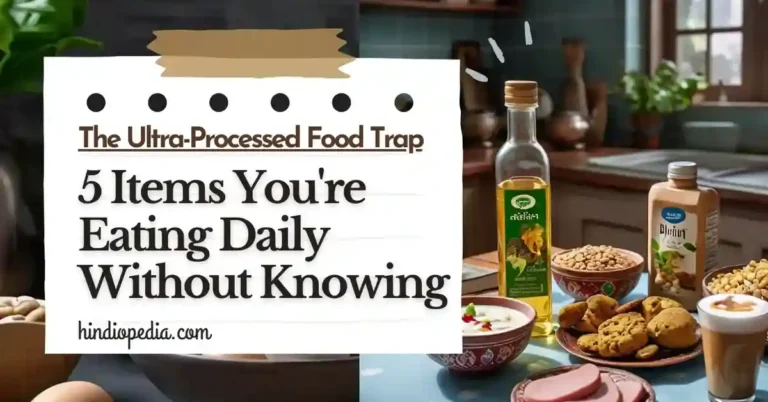5 Sneaky Smoothie Ingredients That Could Be Behind Your Bloating
Smoothies are a popular health drink. They’re quick. They’re easy. They’re packed with nutrients. But sometimes, they can leave us feeling bloated. Why? The answer might be in the ingredients. Let’s explore five sneaky smoothie additions that could be causing your discomfort.

#1 Dairy Products
Milk and yogurt are common smoothie bases. They’re creamy. They’re delicious. But they can be troublemakers for some people. Lactose intolerance is more common than you might think. It affects about 65% of the global population.
How does it work? Our bodies need an enzyme called lactase to digest lactose. Some people don’t produce enough lactase. This leads to bloating, gas, and discomfort.
Even if you’re not lactose intolerant, dairy can still cause issues. It’s a common food sensitivity. Some people’s bodies react to the proteins in dairy. This can lead to inflammation and bloating.
A study in the European Journal of Clinical Nutrition found that dairy consumption can increase bloating in some individuals. The researchers noted that the effects varied from person to person.
#2 High FODMAP Fruits
FODMAP stands for Fermentable Oligosaccharides, Disaccharides, Monosaccharides, and Polyols. That’s a mouthful! These are types of carbohydrates. They can be hard for some people to digest.
Some popular smoothie fruits are high in FODMAPs. These include apples, pears, and watermelon. They’re healthy. But they can cause bloating in sensitive individuals.
How? These fruits contain fructose. It’s a type of sugar. Some people can’t absorb it well. This leads to fermentation in the gut. The result? Gas and bloating.
A study in the Journal of Gastroenterology and Hepatology found that a low FODMAP diet reduced bloating in 75% of participants with IBS.
Table 1: FODMAP Content in Common Smoothie Fruits
| Fruit | FODMAP Level |
|---|---|
| Banana | Low |
| Strawberry | Low |
| Blueberry | Moderate |
| Apple | High |
| Pear | High |
| Watermelon | High |
#3 Protein Powders
Protein powders are popular smoothie add-ins. They boost protein content. They can help with muscle recovery. But they might also cause bloating.
Why? Many protein powders contain additives. These can be hard to digest. Some common culprits are artificial sweeteners and thickeners.
Whey protein is a common type. It’s derived from milk. If you’re lactose intolerant, it could cause issues. Even if you’re not, whey can be hard on some people’s digestive systems.
A study in the British Journal of Nutrition found that some individuals experienced increased bloating after consuming whey protein.
Plant-based proteins aren’t always better. Some, like pea protein, can cause gas and bloating in some people.
Table 2: Common Protein Powders and Their Bloating Potential
| Protein Type | Bloating Potential |
|---|---|
| Whey | High |
| Casein | High |
| Pea | Moderate |
| Rice | Low |
| Hemp | Low |
#4 Artificial Sweeteners
Many people add artificial sweeteners to their smoothies. They want to cut calories. They want to reduce sugar intake. But these sweeteners can cause digestive issues.
How? Our bodies can’t digest some artificial sweeteners. They pass through to the large intestine. There, bacteria ferment them. This produces gas. The result? Bloating and discomfort.
Common culprits include sorbitol, mannitol, and xylitol. These are often found in “sugar-free” products.
A study in the World Journal of Gastroenterology found that artificial sweeteners can alter gut bacteria. This can lead to bloating and other digestive issues.
Table 3: Artificial Sweeteners and Their Effects
| Sweetener | Effect on Gut Bacteria | Bloating Potential |
|---|---|---|
| Sucralose | Alters gut microbiome | Moderate |
| Aspartame | Minimal effect | Low |
| Stevia | May have prebiotic effect | Low |
| Xylitol | Fermented by gut bacteria | High |
#5 Carbonated Water
Some people use carbonated water in their smoothies. It adds fizz. It makes the drink more refreshing. But it can also lead to bloating.
Why? Carbonated drinks introduce air into your digestive system. This extra air can cause your stomach to expand. The result? That uncomfortable bloated feeling.
A study in the European Journal of Gastroenterology & Hepatology found that carbonated beverages can increase bloating and abdominal discomfort.
Table 4: Types of Water and Their Bloating Potential
| Water Type | Bloating Potential |
|---|---|
| Still Water | Low |
| Mineral Water | Low |
| Sparkling Water | High |
| Tonic Water | High |
The Bottom Line
Smoothies can be a great addition to your diet. They’re nutritious. They’re convenient. But if you’re experiencing bloating, it’s worth looking at the ingredients.
Remember, everyone’s body is different. What causes bloating for one person might be fine for another. It’s about finding what works for you.
If you’re concerned about bloating, try eliminating these ingredients one at a time. See how your body responds. Keep a food diary. It can help you identify patterns.







